Are you grappling with the question, “Can A Felon Fly on a plane?” You’re not alone. It’s a common concern clouded by misunderstandings. This guide aims to unpack the complexities of air travel with a felony conviction, providing clarity for your journey.
We’re here to navigate the intricacies and offer helpful advice, ensuring your travel plans are as smooth as possible. Let’s delve into the realities of flying after a felony conviction, setting the stage for your next adventure.
 can a felon fly on a plane if they were convicted of a minor offense?
can a felon fly on a plane if they were convicted of a minor offense?
Domestic Air Travel for Felons: What You Need to Know
When considering domestic flights within the United States, the question “Can a felon fly on a plane?” often arises. The truth is more straightforward than you might think. Despite common misconceptions, a felony conviction does not automatically prevent you from flying domestically. The notion that a criminal record instantly grounds your travel plans is largely a myth.
Understanding the TSA’s Perspective on Felon Air Travel
The Transportation Security Administration (TSA) primarily focuses on current security threats rather than past criminal history. Unless your felony conviction is linked to a security risk or you have an outstanding warrant, the TSA will generally not stop you from boarding a domestic flight. This is encouraging news for felons looking to travel within the U.S.
Legal Factors That May Restrict a Felon’s Flight
While TSA regulations are generally lenient towards felons, it’s important to understand that other legal obligations might impose restrictions on your ability to fly. For example, if you are currently on felony probation or subject to specific court orders, these conditions could prevent you from traveling by air. It’s always advisable to consult with your probation officer or a criminal defense attorney to confirm you are legally permitted to fly.
The ability for a felon to fly is not automatically denied, but requires careful consideration of individual circumstances and potential legal restrictions. Planning ahead and understanding any specific limitations is key to ensuring smooth travel.
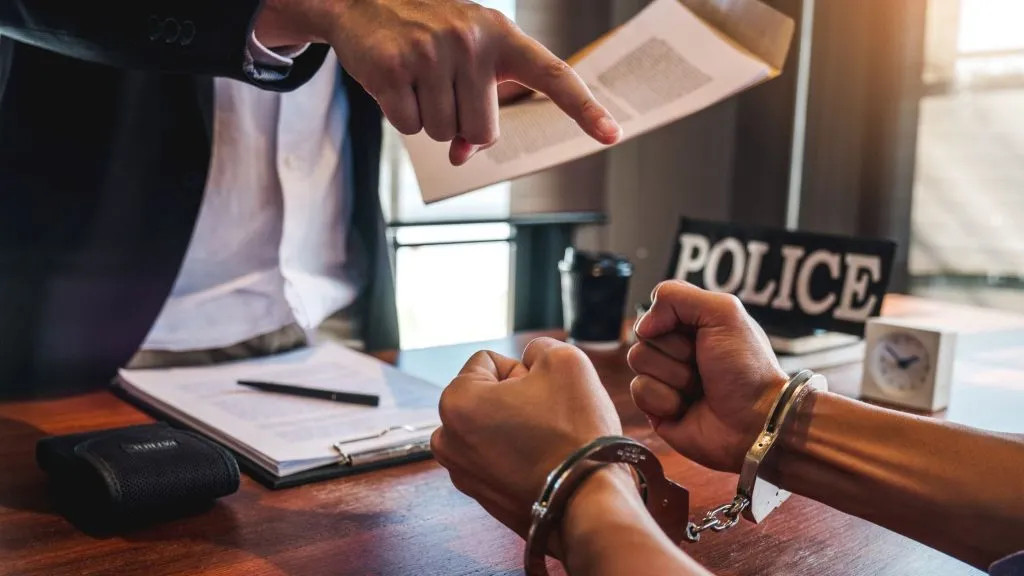 can a felon fly on a plane if they were arrested for a serious crime?
can a felon fly on a plane if they were arrested for a serious crime?
Obtaining a U.S. Passport with a Felony Record
For felons aspiring to travel internationally, securing a U.S. passport is often the initial step. Contrary to popular assumptions, a criminal record does not always disqualify you from obtaining a passport.
Unless federal law explicitly prohibits passport issuance due to specific international travel restrictions—often related to severe crimes or outstanding federal warrants—a felon can typically obtain a U.S. passport. Common exceptions that may impact passport eligibility include convictions related to drug trafficking or certain child support issues.
The U.S. Passport Application Process for Felons
Applying for a U.S. passport involves a review process that may flag outstanding warrants or serious criminal charges that could be considered security concerns. If your record is clear of these issues, your application is likely to proceed smoothly. When applying, it’s crucial to ensure all details regarding your criminal history, including any periods of substance abuse or rehabilitation, are reported accurately. This transparency is essential to demonstrate good moral character, which is a factor in passport approval.
International Travel Clearance for Felons
Possession of a U.S. passport, while necessary, is not a universal guarantee of entry into all countries, especially for international travel. Many countries conduct their own criminal background checks, and a serious felony conviction could be grounds for inadmissibility. Thoroughly researching the visa requirements and entry policies of your intended destination well in advance is crucial. The U.S. State Department’s website is an invaluable resource for detailed, country-specific travel information.
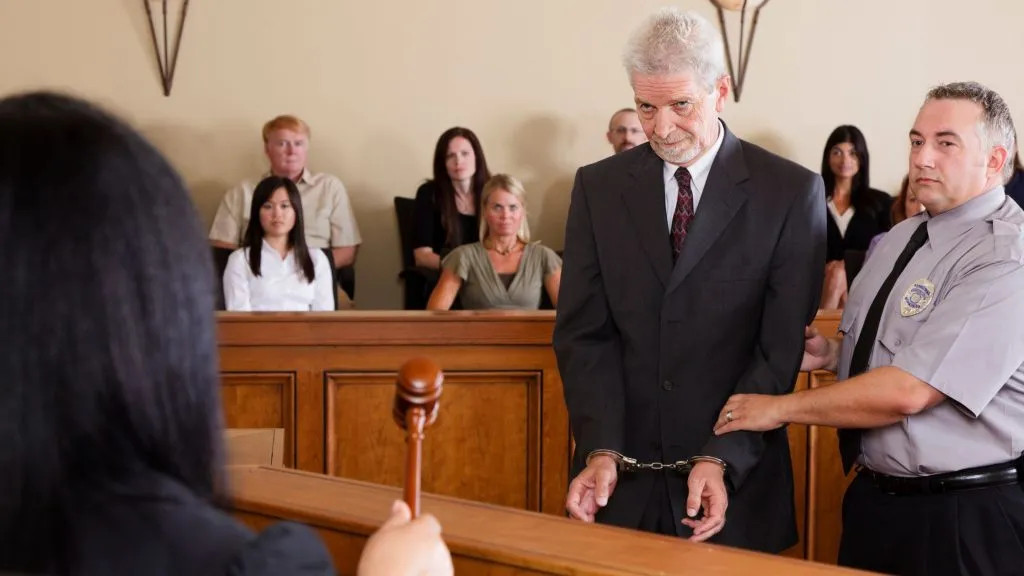 can a felon fly on a plane and still enjoy the same freedom as any passengers?
can a felon fly on a plane and still enjoy the same freedom as any passengers?
The Importance of Legal Consultation for International Travel
Navigating the complex landscape of international travel laws and regulations can be challenging for felons. Consulting with a criminal lawyer who specializes in international travel can provide invaluable guidance. An attorney-client relationship ensures you have expert advocacy, whether you’re dealing with passport applications, visa requirements, or understanding the entry policies of foreign countries. The aim is to prepare for your travels with confidence and the correct documentation, minimizing potential issues related to your felony conviction.
Can Felons Become Pilots? Navigating FAA Regulations
Many individuals with a felony conviction history may also wonder, “Can a felon fly on a plane as a pilot?” This is a pertinent question with a nuanced answer. The journey to becoming a pilot is rigorous, involving extensive background checks and strict Federal Aviation Administration (FAA) regulations designed to ensure the highest levels of aviation safety.
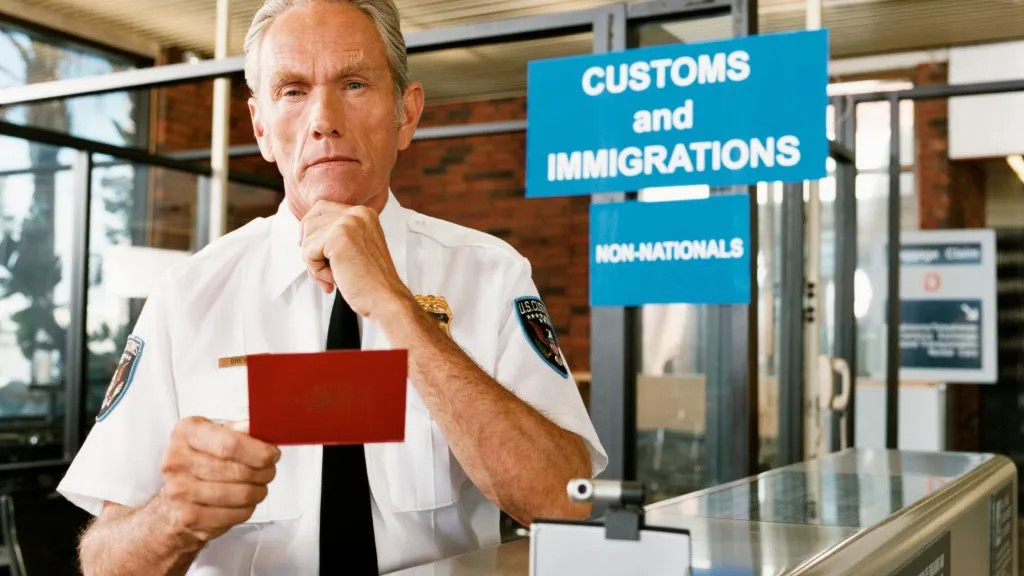 Will TSA security deny felons from boarding a plane?
Will TSA security deny felons from boarding a plane?
The FAA’s Approach to Felon Pilot Applications
The FAA evaluates each pilot license application on an individual basis. A felony conviction does not automatically disqualify an applicant. However, certain convictions can have significant negative impacts, especially those related to violent felonies, drug trafficking, or any crime that could potentially compromise the safety of flight operations, crew members, or passengers.
Medical and Legal Clearances for Aspiring Felon Pilots
A medical certificate is a mandatory prerequisite for all aspiring pilots, requiring a comprehensive medical examination. This exam assesses your overall health, including any history of substance abuse or mental health concerns, which are critical factors in determining flight safety. Furthermore, outstanding warrants or unresolved legal issues, such as probation violations or pending court cases, can also impede or permanently halt your aspirations to become a pilot.
Minor Offenses Versus Major Obstacles in Pilot Certification
While minor offenses may not necessarily prevent you from becoming a professional pilot, the specific nature and severity of the crime are always key determinants. For example, a misdemeanor DUI conviction may be viewed differently than a conviction for a serious felony like manslaughter or illegal possession of a firearm. The FAA’s focus is on ensuring that all pilots meet the highest standards of safety and responsibility.
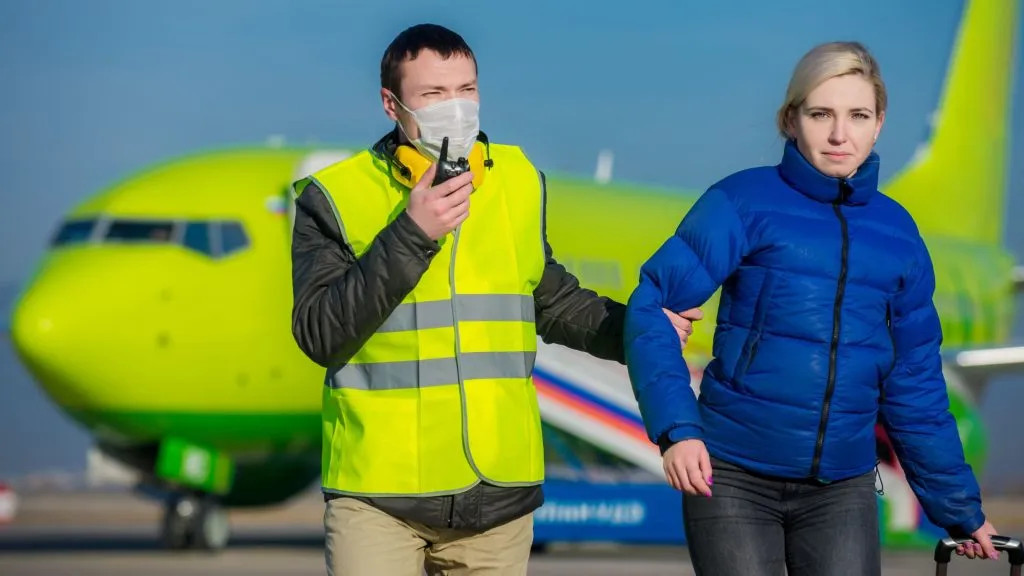 Does a felon still have the right to fly domestically?
Does a felon still have the right to fly domestically?
Proactive Steps for Felons Pursuing Pilot Careers
Before investing significant time and resources in flight training, it’s highly recommended to contact the FAA directly for personalized guidance. Their official website and advisory services can provide detailed information on the specific conditions and requirements for pilot certification, especially for individuals with a felony record. Early consultation can clarify the feasibility of your career path and help you understand any potential hurdles.
The Realities of Commercial Aviation for Felon Pilots
While obtaining a student pilot certificate or even a private pilot license might be achievable, securing employment with major commercial airlines presents additional challenges. Airlines often have more stringent hiring criteria than the FAA, driven by the paramount need to ensure passenger safety and maintain public trust. This often translates to a preference for pilots with unblemished records, making the path to commercial piloting more competitive for felons.
Next Steps for Felons Aspiring to Pilot Careers
If you are determined to pursue a career as a pilot despite a felony conviction, do not be discouraged without first seeking direct advice from the FAA. In some instances, demonstrating rehabilitation and addressing past issues, particularly those related to less severe crimes, may open doors that initially seemed closed. Seeking legal counsel specializing in aviation law can also be beneficial in understanding your rights and navigating the application process effectively. Presenting a well-prepared and transparent case to the FAA can sometimes clear the way for your pilot ambitions to take flight.
 can a felon fly on a plane to specific countries?
can a felon fly on a plane to specific countries?
International Travel Scrutiny for Felons: Navigating Global Borders
For U.S. citizens with a felony conviction, planning international travel can feel like navigating uncertain territory. However, with careful preparation and the right information, many countries may still be accessible. The key is understanding the specific entry policies of your desired destinations regarding individuals with criminal records.
Varying Global Entry Policies for Felons
Countries around the world have diverse approaches to admitting individuals with felony convictions. Nations with strict immigration policies may impose significant entry barriers, particularly for those with violent felony convictions. Conversely, some countries may take a more nuanced approach, considering the nature of the crime, the time elapsed since the conviction, and evidence of rehabilitation when making entry decisions.
The Importance of Disclosure on Visa Applications
When applying for a visa, transparency is paramount. Visa applications often require disclosing sensitive information about your criminal history. Honesty is not just advisable—it’s essential. Failure to disclose a felony conviction can lead to visa denial or even more serious consequences upon arrival in a foreign country.
It’s important to remember that even for countries that offer visa-free travel or visas on arrival to U.S. citizens, immigration authorities often retain the right and capability to access your criminal history at the point of entry. Passport privileges do not override a country’s sovereign right to control its borders.
 Is it possible for felons to receive a visa if they were convicted of voluntary manslaughter?
Is it possible for felons to receive a visa if they were convicted of voluntary manslaughter?
Utilizing Official Guidance for International Travel Planning
For the most accurate and up-to-date entry requirements, always consult the official government website of your destination country. These resources provide specific details on visa requirements and entry policies for individuals with criminal records. Reputable news sources and travel advisories can also offer insights into current attitudes and policies regarding the entry of U.S. citizens with felonies.
Effective Communication with Immigration Officials
When interacting with airport or immigration officials, especially when you have a felony conviction, preparation is key. Be ready to present comprehensive documentation supporting your admissibility and a clear, justifiable reason for your travel. Should questions arise, either upon application or at the point of entry, having concise, honest answers and all necessary paperwork readily available is in your best interest.
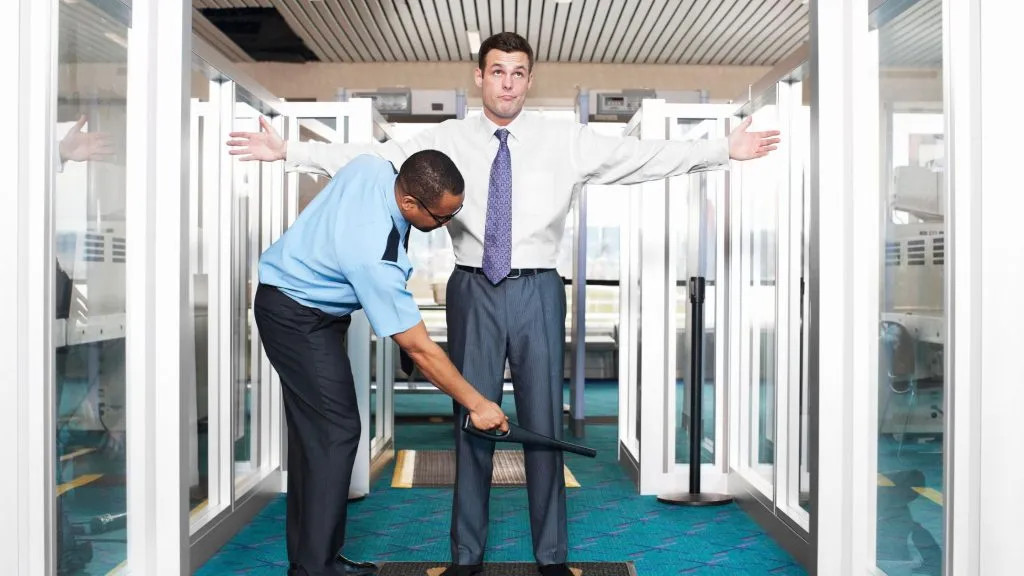 Are felons treated differently than other passengers?
Are felons treated differently than other passengers?
Seeking Legal and Law Enforcement Liaison for Complex Cases
If navigating the complexities of international travel regulations feels overwhelming, don’t hesitate to seek guidance from legal experts specializing in international travel or relevant law enforcement agencies. These professionals can provide tailored advice based on your specific circumstances and the laws of your intended destinations. While discussing travel plans as a felon might feel sensitive, legal experts are accustomed to these situations and can offer confidential, informed assistance.
Journeying Forward: Travel After a Felony
Remember, a past felony conviction does not have to confine you. By staying informed through reliable sources, including official government websites and credible informational articles like this one, you can navigate the evolving landscape of travel regulations. Just as societies adapt in understanding past criminal records, travel policies are also subject to change.
The encouraging news for individuals with felony convictions is that, unless specific court orders restrict it, domestic travel within the United States is generally permitted. For many, particularly those with convictions from years ago, this offers significant relief and the freedom to explore. Travel safely, and may your future journeys be as enriching as the destinations you choose to visit.
FAQ: Can a Felon Fly on a Plane
Can a felon fly on a plane within the United States?
Yes, felons can typically fly on a plane within the United States. A felony conviction alone does not automatically revoke the right to domestic air travel. The common belief that a criminal record prevents air travel is generally incorrect, unless specific legal restrictions are in place.
How does the TSA view felons regarding air travel security?
The Transportation Security Administration (TSA) prioritizes security threats over an individual’s past criminal history. Unless a felon’s conviction is related to a security risk or there is an active warrant, the TSA usually permits felons to board domestic flights.
Are there legal conditions beyond TSA rules that might prevent a felon from flying domestically?
Yes, legal conditions such as felony probation or specific court orders can restrict a felon’s ability to fly domestically. It’s essential for individuals with felony convictions to consult their probation officer or a criminal defense lawyer to ensure they are cleared for travel.
Can a felon obtain a U.S. passport for international travel?
Yes, in many cases. Having a criminal history does not automatically disqualify a felon from obtaining a U.S. passport. Unless federal law explicitly prohibits it due to specific international travel restrictions, felons are generally eligible for a U.S. passport.
What factors might affect a felon’s ability to enter other countries?
Several factors can influence a felon’s entry into other countries, including the nature of the crime, the time elapsed since the offense, and evidence of rehabilitation. Each country has its own policies on admitting individuals with criminal backgrounds, and some conduct background checks that could flag serious crimes.
Is it possible for a felon to become a pilot? How does the FAA assess their applications?
Yes, it is possible, but challenging. The Federal Aviation Administration (FAA) assesses pilot applications from felons on a case-by-case basis. A criminal offense does not automatically disqualify an applicant, but the nature of the crime and its relevance to aviation safety are critical considerations in the FAA’s decision.
What steps and considerations are important for a felon wishing to train as a pilot?
Felons interested in pilot training should first contact the FAA for guidance specific to their situation. They will need to pass a medical exam and provide evidence of their health, including any history of substance abuse or mental health issues. While minor offenses may not prevent training, the nature of the crime is always a significant factor.
How should felons prepare for potential scrutiny when traveling internationally?
Felons should be transparent when applying for visas and be prepared to present thorough documentation regarding their criminal history and purpose of travel. Honesty and having clear, concise answers and organized paperwork are crucial when interacting with airport officials or immigration authorities.
What resources can assist felons in understanding their travel rights and restrictions?
Felons can find assistance from government websites of their destination countries, as well as reputable legal resources and law enforcement agencies. These sources offer up-to-date information on travel rights and restrictions for individuals with felony convictions.
Can a felon with a decades-old conviction travel freely within the United States?
Generally, yes. Felons with convictions from many years ago can typically travel freely within the United States, unless specific court orders or legal restrictions related to their individual case are still active. It is advisable to confirm travel eligibility with legal counsel or a probation officer if there is any uncertainty.
